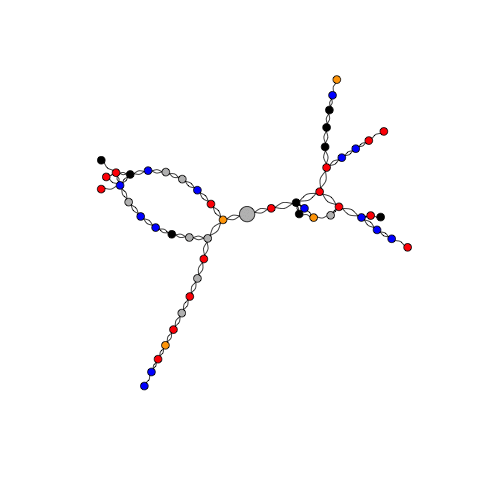A Neutral Theory of Plant Carbon Allocation

I'm developing a neutral theory of plant carbon allocation, leveraging the biochemical network of plant carbon metabolism.
Plants take in carbon via photosynthesis and face a set of 'decisions' in how to allocate this carbon.
For instance, some carbon may be used for growth.
However, whether a preference exists for the allocation of carbon (growth first and other sinks later) has been at the center of much debate.
Neutral theory is a minimum assumption model with the aim of asking: what happens if carbon allocation was completely random? Do rules emerge from the network of chemical reactions that can explain empirical observations?
The basic approach is to allow carbon allocation to work like a random walk, where the movement of carbon between intermediate products is simply a function of how many intermediates are directly connected by an edge to the current state.
As the number of steps tends to infinity, we can derive the stationary probability of absorption to each sink (growth, storage, respiration, defense).
The simulation process is shown in the gif above and the paper is currently in review at Tree Physiology.
